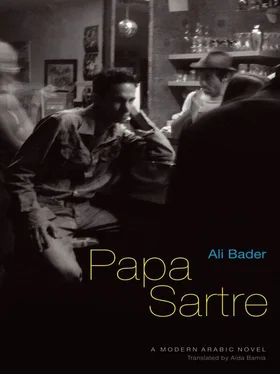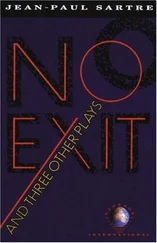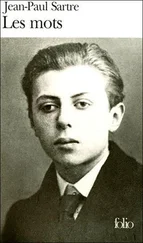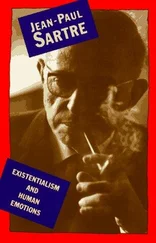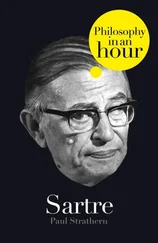When my friend went to drink a cup of tea in the garden, I stood alone, leaning against a column and smoking. I felt a tap on my shoulder. It was Nunu Behar — a transformed Nunu wearing tight trousers and a long white chemise to her hips. She wore no makeup. I was a little concerned when she greeted me because I knew deep inside that Sadeq could never forgive me, and the documents that Hanna took from my apartment could well have destroyed him. He wouldn’t believe me if I told him that Hanna had stolen them; he’d think that I had sold them to him for a tidy sum. He might even think that I had plotted with Hanna against him. Then I heard Nunu tell me that Michel wanted to see me. I was surprised and asked, admiring her beautiful face, “Michel? Who is Michel?”
“You don’t know? I’ll give you the address. We’ll expect you tomorrow,” she said coquettishly, smiling in her seductive manner. She searched in her purse and gave me a visiting card with the address. “We have a job for you, better than the other one. This time you’ll make a lot of money.”
The garden emptied of people, and the concert resumed. My friend returned and suggested we go back in. She looked in amazement at Nunu, mistaking her for a man. Nunu said to her, “We’re old friends. I’ll leave you now. We’ll see you tomorrow. Don’t be late. Michel is expecting you.”
My friend asked me, “Who is he?” As the conductor raised the baton I replied, “I don’t know anymore.”
The following morning I went to the address listed on the card. It was in the Waziriya district. I crossed the British cemetery, entered Turkish Embassy Street, and came out right in front of an old house with a white fence and a brown-tiled roof. The garden was full of high trees and had a large iron gate. The servant led me into the living room. The place was tastefully furnished with a small piano and an aquarium. The walls were decorated with pastel Impressionist paintings, signed in English by Khuder Jerjis, an Iraqi painter. There were also two photographs, one of Sartre and one of Michel Foucault, one hand covering his mouth, the other on the back of an armchair.
“Welcome,” said Nunu and led me by the hand to a small table near the window overlooking the garden. She had undergone a total change. Her hair was cut very short, like a boy’s. She was wearing men’s trousers and a large blouse that hid her big breasts, and she smoked a cigar. She offered me one but I told her that I smoked a different kind. She asked why, so I said, “This is a strong cigar, fit for a strong man like you.” She laughed heartily then announced Michel’s arrival.
To my surprise, Michel turned out to be the same Ismail Hadoub or Sadeq Zadeh. He had shaved his head completely and wore gold-framed glasses that resembled Foucault’s. With his height, thin body, white shirt, shaven head, and foxy eyes he looked very much like the Foucault in the photograph on the wall. He greeted me in a philosophical manner and donned an inquisitive look, sat down, and placed one hand over his mouth and the other on the back of the armchair where Nunu was sitting. He was smiling while he looked me over. Nunu got down to business. “Michel has a huge project. You can make a lot of money from it and give Michel a chance to serve Arabic culture.” I asked, my voice slightly choking, “What is this project?”
“A book,” said Nunu.
Michel turned his shaven head in my direction; he looked like a cat considering a piece of red meat. He had lost his edginess, however, and spoke eloquently to impress me with his superior intellect. “I found Sartre useless for Arabic culture, as nihilism and nausea didn’t manage to solve our problems, but I read Michel Foucault and discovered that structuralism is the one approach that will work for us. I want to write a book that explains this idea. What do you think?”
I was overcome with an oppressive feeling. I asked him with little interest, “I don’t understand, who will write the book?”
“You,” he said hesitantly, blushing.
Nunu intervened, “You’ll get the money, and Michel will put his name on the book.”
“He will put Michel Foucault’s name on the cover?” I asked in an obviously sarcastic tone.
“No, he will use his new name, the Structuralist of Waziriya. After the death of the Existentialist of al-Sadriya, we have to invent a new philosopher for Baghdad, and this will be none other than the Structuralist of Waziriya,” Nunu clarified. The new, would-be philosopher continued sitting in the same manner as the Foucault who hung on the wall.
“Well, what is that book? What kind of book?” I asked.
He explained, “You know that Foucault wrote a book about the madness of the classical period and used it to denounce western culture. We’d like a similar book in which you would denounce Arabic culture. We’ll write a book about the madness of the Islamic period.”
Before I could utter a single word, Nunu spoke up, “This time you’ll get your money in installments.”
The philosopher added in an accent that resembled that of a notable Iraqi man, “We’ll give you the royalties we make from the book as well.”
Lighting a cigarette, I interjected, “Well, we’ll face a problem you may not have thought about.” Nunu rushed to light my cigarette.
“What’s that?” The philosopher asked.
“Who said that Islamic culture marginalizes madness? I don’t think it does. A mad person has a respectable place in society, and the proof is you.”
Both exploded in laughter, “Are you sure?” asked the philosopher, smiling.
“Do you have any doubt?” I asked.
Nunu chimed in, ready to light up another thick cigar, “Please, no mockery.”
The philosopher approved, “Don’t you see that Islamic philosophy did not marginalize madness and as a result fell victim to illogical thinking. Otherwise where in our culture could it have come from? It must have come to us from within our civilization, which did not marginalize madness as western culture did.”
“Sound idea,” I concurred, trying to avoid getting sucked into the project.
Michel explained, “All right. We’ll write a book condemning Islamic civilization because it did not marginalize madness. Had reason prevailed in our civilization, madness would have been marginalized, and because madness has not been marginalized our civilization has became illogical.”
“Great, great,” shouted Nunu and almost sat on Michel’s lap. He laughed loudly, stood up, clapped, and went to the bar. Nunu got up as well. They danced and swayed for joy, holding up their whiskey glasses and drinking to structuralism and the death of existentialism. This crazy man was dreaming of changing the viewpoint of the whole Arab population, from the Atlantic Ocean to the Arabian Gulf, by having them adopt structuralism. Men would shave their heads and wear gold-framed glasses. Women would cut their hair short like boys and wear pants. I didn’t know how to get out of my predicament. I stood up and began dancing with them, drinking to the health of the newborn structuralism. I was shouting, dancing, and rocking back and forth. The chairs in the living room were overturned, and the servants looked on in shock. When both Nunu and Michel fell to the floor, I opened the door and ran as fast as I could.
One day I was walking down the street and saw a black and white stork land on the Turkish embassy. I crossed the street under a soft sun. Traffic was moving smoothly, and I heard the voices of the newspaper salesmen and cigarette merchants and the car horns all around me. A man in white headgear was walking in front of me. He was holding a string of prayer beads, and a woman wrapped totally in black walked behind him. Someone shouted, “Sheikh Jamal, Sheikh Jamal.” I don’t know why, but at this exact moment I thought of Jamal al-Din al-Afghani and how Ismail Hadoub might have been influenced by him. Guided by this philosopher he would likely be wearing a white turban and holding prayer beads, while Nunu would be walking behind him wrapped in black from head to toe.
